Understanding Chemical-Free Pools
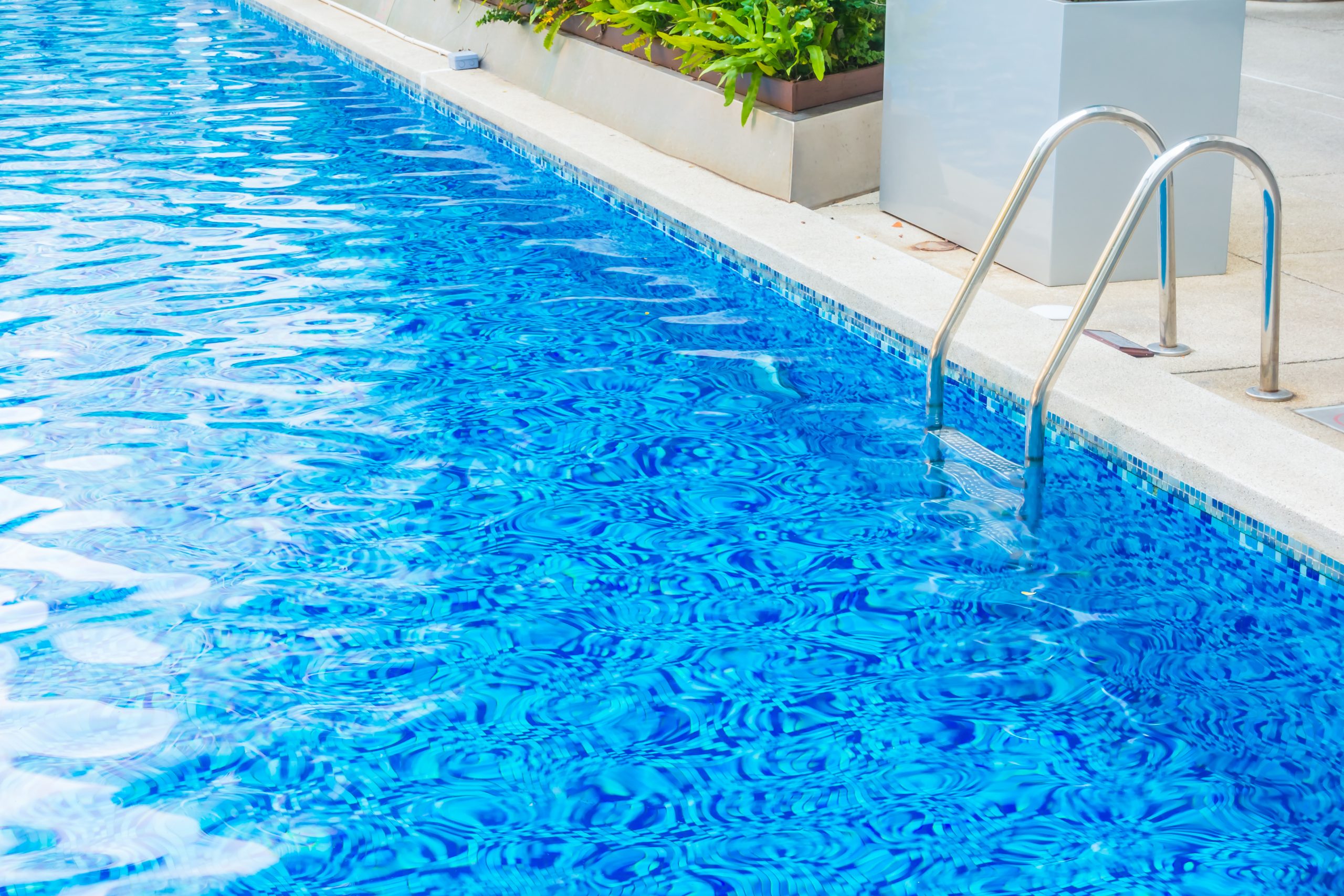
Chemical-free pools are swimming pools that are disinfected and sanitized without the use of harsh chemicals such as chlorine or bromine. Instead, these pools rely on natural processes and biological filtration to keep the water clean and safe for swimming.
Different chemical-free pool systems
There are a variety of different chemical-free pool systems available, each with its own unique approach to water treatment. Some common methods include:
- Ultraviolet (UV) light: UV light kills bacteria and algae by disrupting their DNA.
- Salt water electrolysis: Salt water is converted into chlorine gas using an electrolysis cell. The chlorine gas then reacts with organic matter in the water to form hypochlorous acid, which is a powerful sanitizer.
- Ozone: Ozone is a highly reactive gas that can kill bacteria and algae on contact.
- Biological filtration: Biological filters use beneficial bacteria to break down organic matter in the water.
Exploring the Benefits of Chemical-Free Pools
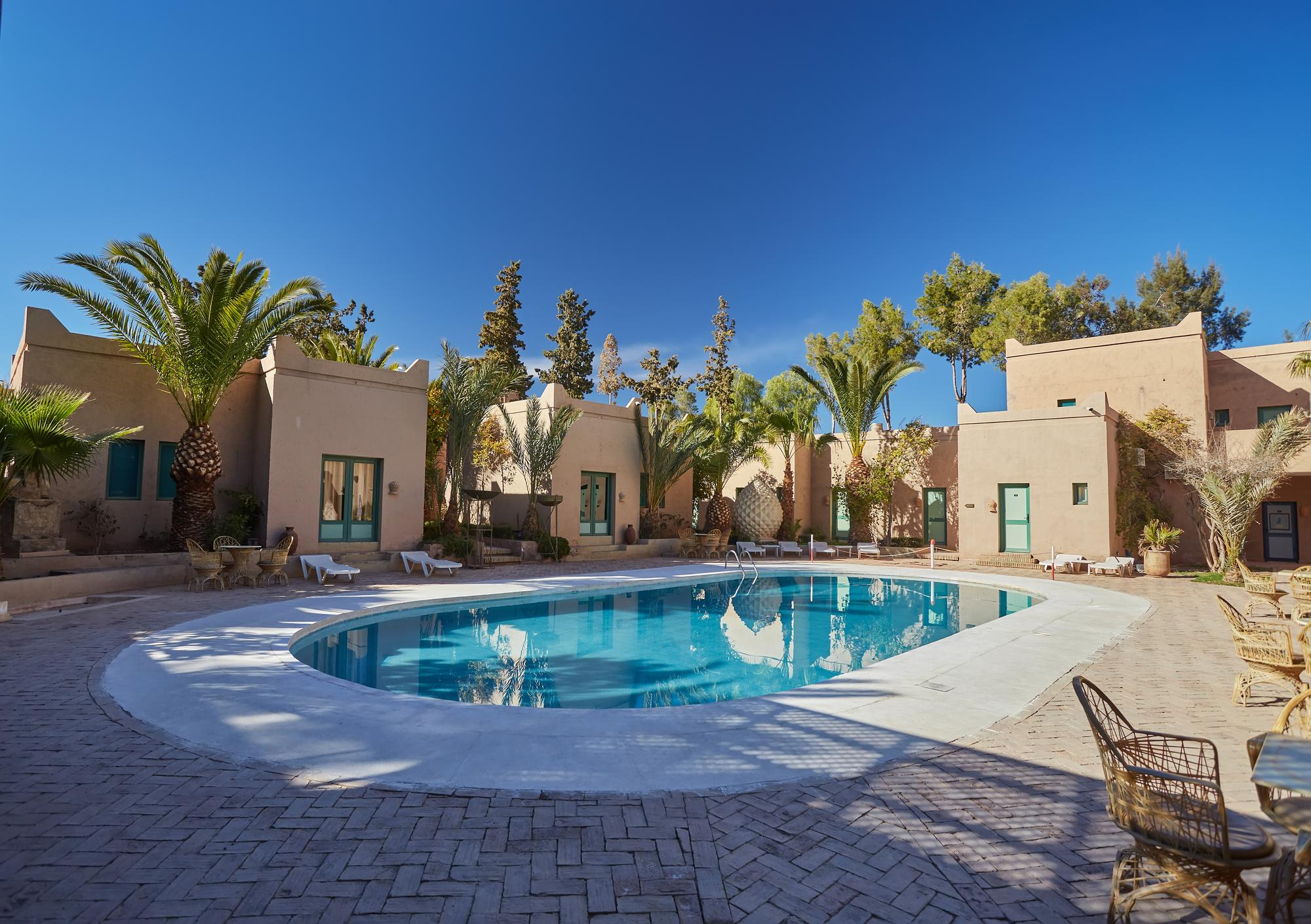
There are several potential benefits to owning a chemical-free pool, including:
- Healthier water: Chemical-free pools are typically free of harsh chemicals, which can irritate skin, eyes, and lungs.
- Environmentally friendly: Chemical-free pool systems produce fewer harmful byproducts than traditional pool systems.
- Lower maintenance costs: Chemical-free pools require less frequent maintenance than traditional pools.
- More natural swimming experience: Chemical-free pools offer a more natural swimming experience, without the harsh smell and taste of chlorine.
How Chemical-Free Pools Work
The exact way that a chemical-free pool works depends on the specific system that is being used. However, all chemical-free pool systems rely on natural processes and biological filtration to keep the water clean and safe for swimming.
For example, UV light systems kill bacteria and algae by disrupting their DNA. Saltwater electrolysis systems convert salt water into chlorine gas, which then reacts with organic matter in the water to form hypochlorous acid, a powerful sanitizer. Ozone systems release ozone gas into the pool water, which kills bacteria and algae o
The Science Behind Chemical-Free Pools
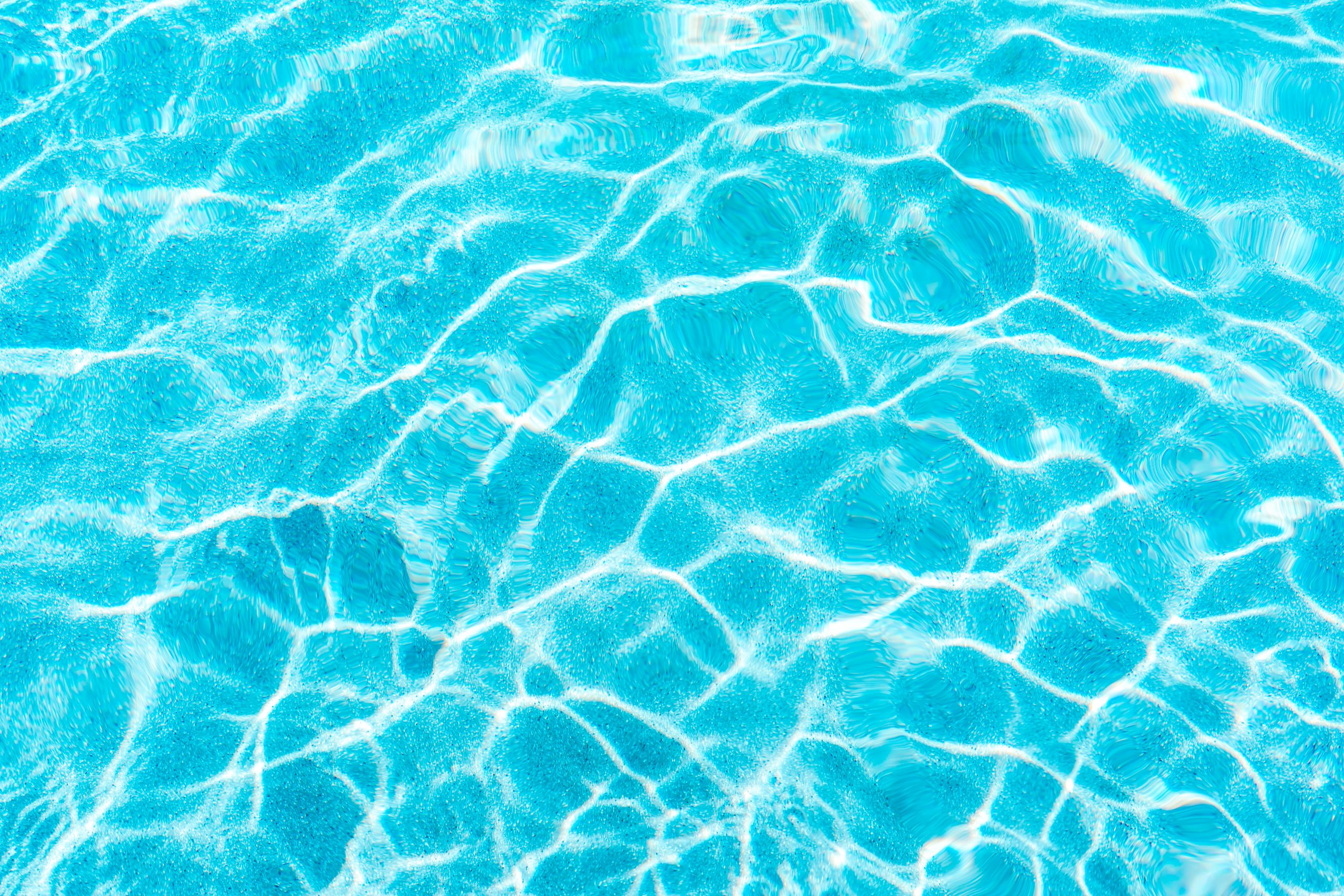
The science behind chemical-free pool systems is complex, but it is based on the fundamental principles of biology and chemistry. For example, UV light systems kill bacteria and algae by disrupting their DNA. This prevents the bacteria and algae from replicating and growing in the pool water.
Saltwater electrolysis systems convert salt water into chlorine gas. Chlorine gas is a strong oxidizing agent, which means that it reacts with organic matter to form harmless byproducts. This process keeps the pool water clean and safe for swimming.
Ozone is a highly reactive gas that can kill bacteria and algae on contact. Ozone also oxidizes organic matter in the water, which helps to keep it clean and clear.
Biological filters use beneficial bacteria to break down organic matter in the water. This process is called biofiltration. Biofiltration is a natural process that occurs in all bodies of water, including swimming pools.
Making the Switch to a Chemical-Free Pool
If you are considering switching to a chemical-free pool, there are a few things you need to keep in mind. First, you will need to choose the right chemical-free pool system for your needs. There are a variety of different systems available, so it is important to do your research and choose one that is right for your budget and lifestyle.
Once you have chosen a chemical-free pool system, you will need to have it professionally installed. This is important to ensure that the system is installed correctly and that it will work properly.
Maintaining a Chemical-Free Pool
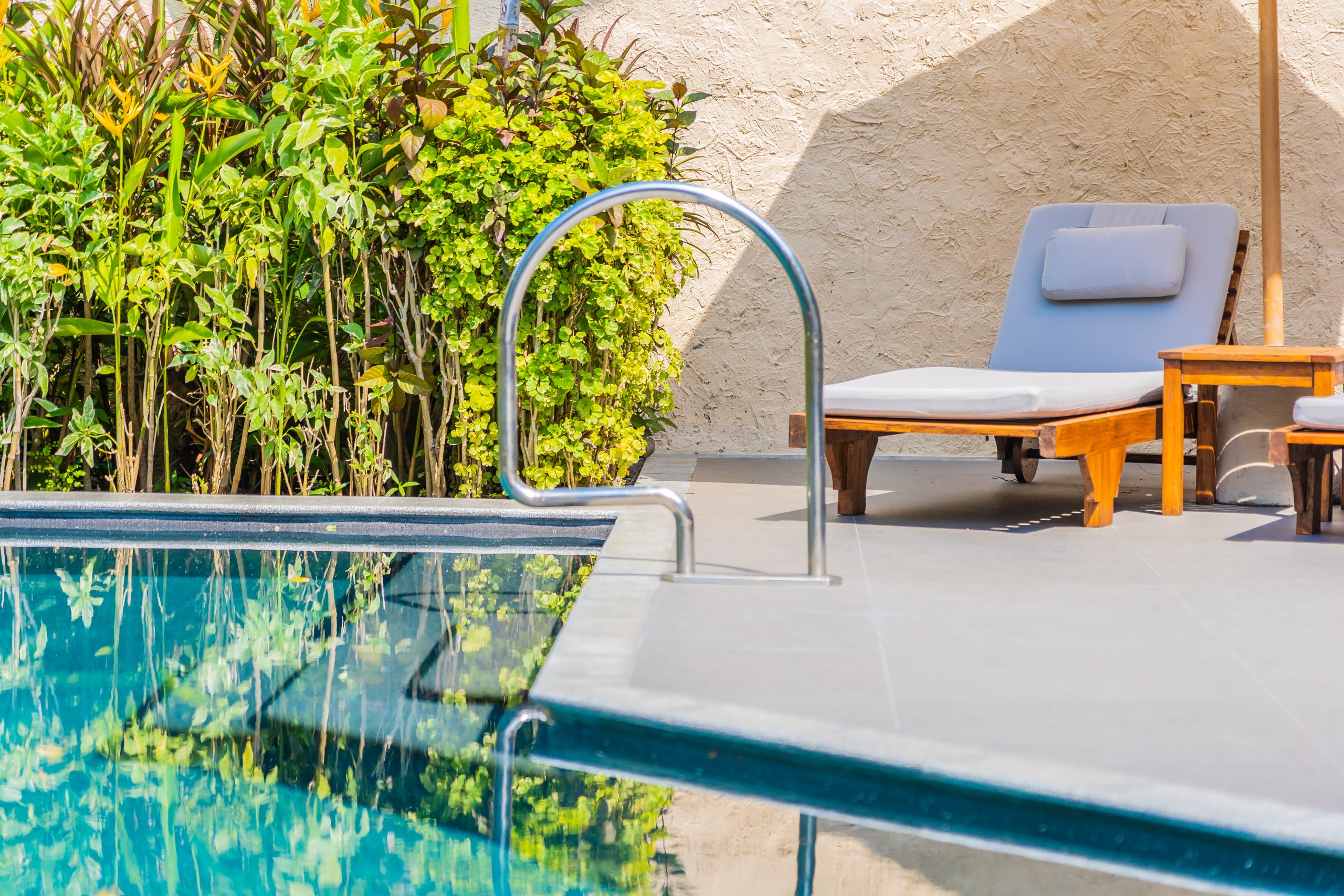
Chemical-free pools require less frequent maintenance than traditional pools. However, it is still important to maintain your chemical-free pool regularly to keep it clean and safe for swimming.
The specific maintenance requirements will vary depending on the type of chemical-free pool system that you are using. However, some common maintenance tasks include:
- Testing the water: It is important to test the water in your chemical-free pool regularly to ensure that it is balanced and that the sanitizer levels are correct.
- Cleaning the pool: You will need to clean the pool regularly to remove dirt, debris, and algae.
- Maintaining the filter: You will need to backwash and clean the filter regularly to remove any contaminants.
Health and Environmental Advantages of Chemical-Free Pools
Chemical-free pools offer several health and environmental advantages over traditional pools.
Health advantages:
- Chemical-free pools are typically free of harsh chemicals, which can irritate skin, eyes, and lungs. This can be especially beneficial for people with allergies or sensitivities to chemicals.
- Chemical-free pools can also help to reduce the risk of skin infections, such as swimmer’s ear and impetigo.
- Chemical-free pools are a good choice for children, as they are less likely to experience skin irritation or other health problems from exposure to chemicals.
Environmental advantages:
- Chemical-free pool systems produce fewer harmful byproducts than traditional pool systems. This is because chemical-free systems do not use chlorine or other harsh chemicals.
- Chemical-free pools can help to reduce the amount of chemicals that enter the environment. This is because chemical-free systems do not require the use of harsh chemicals to keep the pool water clean and safe.
- Chemical-free pools can also help to conserve water. This is because chemical-free systems do not require the use of as much water as traditional pool systems.
Common Misconceptions about Chemical-Free Pools
There are a few common misconceptions about chemical-free pools. One misconception is that chemical-free pools are not as clean as traditional pools. However, this is not true. Chemical-free pools can be just as clean as traditional pools, if not cleaner.
Another misconception is that chemical-free pools are more difficult to maintain than traditional pools. However, this is also not true. Chemical-free pools require less frequent maintenance than traditional pools.
Choosing the Right Chemical-Free Pool for Your Home
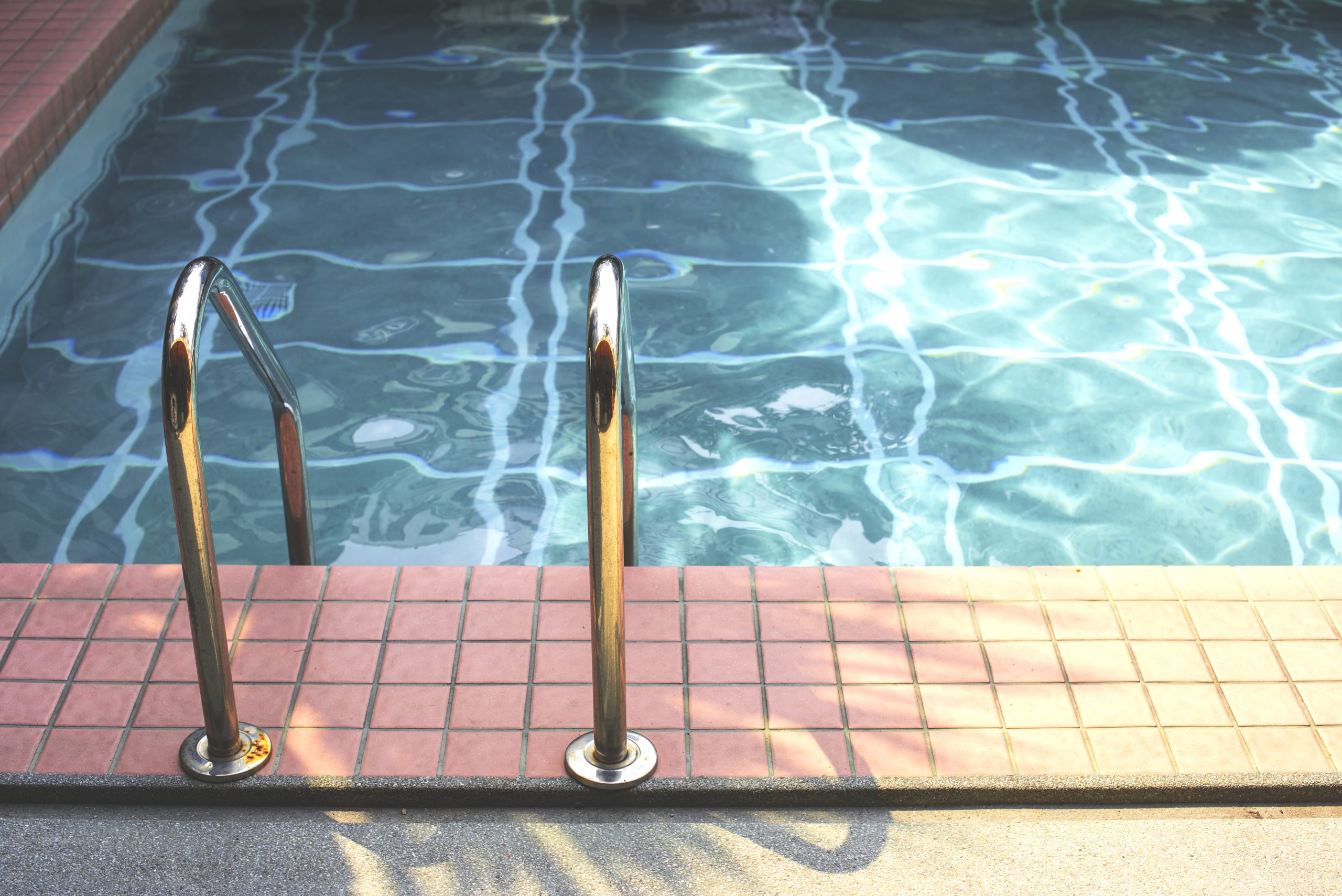
When considering setting up a pool, a vital factor to evaluate is the cost implication of either opting for a chemical-free pool or a traditional pool. These two types of pools present differing initial setup costs and maintenance expenses. Let’s delve into a deeper analysis to help you make an informed decision.
Initial Installation Costs
Chemical-Free Pools:
- Higher Initial Investment: Generally, chemical-free pools, such as natural swimming pools or mineral water pools, demand a higher initial investment compared to traditional pools. This cost difference can be attributed to the sophisticated filtering systems and the need for specialized construction to mimic natural ecosystems or utilize minerals for purification.
- Unique Design Costs: These pools often integrate unique designs and natural elements like rocks and plants, potentially elevating the overall setup costs.
Traditional Pools:
- Lower Initial Costs: Traditional chlorine-based pools usually have a lower initial setup cost. The basic structure and chlorine filtration system tend to be more straightforward and thus less expensive.
- Standardized Construction: Traditional pools often follow more standardized construction processes, which might reduce design and installation costs.
Maintenance Costs
Chemical-Free Pools:
- Lower Recurrent Costs: The maintenance of a chemical-free pool can be more affordable in the long run because you are not purchasing chemical supplies routinely.
- Biological Filtration: These pools leverage biological processes to maintain water purity, which can minimize ongoing expenses but might require periodic expert consultations to ensure proper functioning.
Traditional Pools:
- Higher Recurrent Costs: Traditional pools involve higher ongoing maintenance costs, primarily due to the regular need for chemicals to maintain water quality.
- Maintenance Services: Traditional pools may necessitate routine professional maintenance services to ensure the correct balance of chemicals, adding to the yearly expenses.
Health and Environmental Costs
Chemical-Free Pools:
- Health Benefits: By avoiding harsh chemicals, chemical-free pools offer a healthier swimming environment, potentially reducing health-related costs linked to chlorine exposure.
- Environmentally Friendly: These pools are generally more environmentally friendly, which might not translate to monetary savings but adds value through the conservation of natural resources and ecosystems.
Traditional Pools:
- Health Concerns: Traditional pools employ chemicals like chlorine, which, although effective in sterilizing water, can cause health issues over time, possibly leading to higher health-related costs.
- Environmental Impact: The use of chemicals also means a higher environmental footprint, as chemical production and usage can be harmful to the environment.
While chemical-free pools demand a higher initial investment, they tend to offer lower recurrent maintenance costs, coupled with health and environmental benefits. On the other hand, traditional pools present a more affordable initial setup but might incur higher ongoing expenses and potentially higher health and environmental costs. The decision would thus depend on individual preferences and considerations regarding health, environment, and budget.
Conclusion
Chemical-free pools offer a number of advantages over traditional pools. Chemical-free pools are typically free of harsh chemicals, which can irritate skin, eyes, and lungs. Chemical-free pools can also help to reduce the risk of skin infections and are a good choice for children.
Chemical-free pool systems produce fewer harmful byproducts than traditional pool systems and can help to reduce the amount of chemicals that enter the environment. Chemical-free pools can also help to conserve water.
If you are considering switching to a chemical-free pool, there are a few things you need to keep in mind. First, you will need to choose the right chemical-free pool system for your needs. Second, you will need to have the system professionally installed. Third, you must maintain the pool regularly to keep it clean and safe for swimming.
Overall, chemical-free pools are a good choice for people who are looking for a healthier and more environmentally friendly swimming experience.
